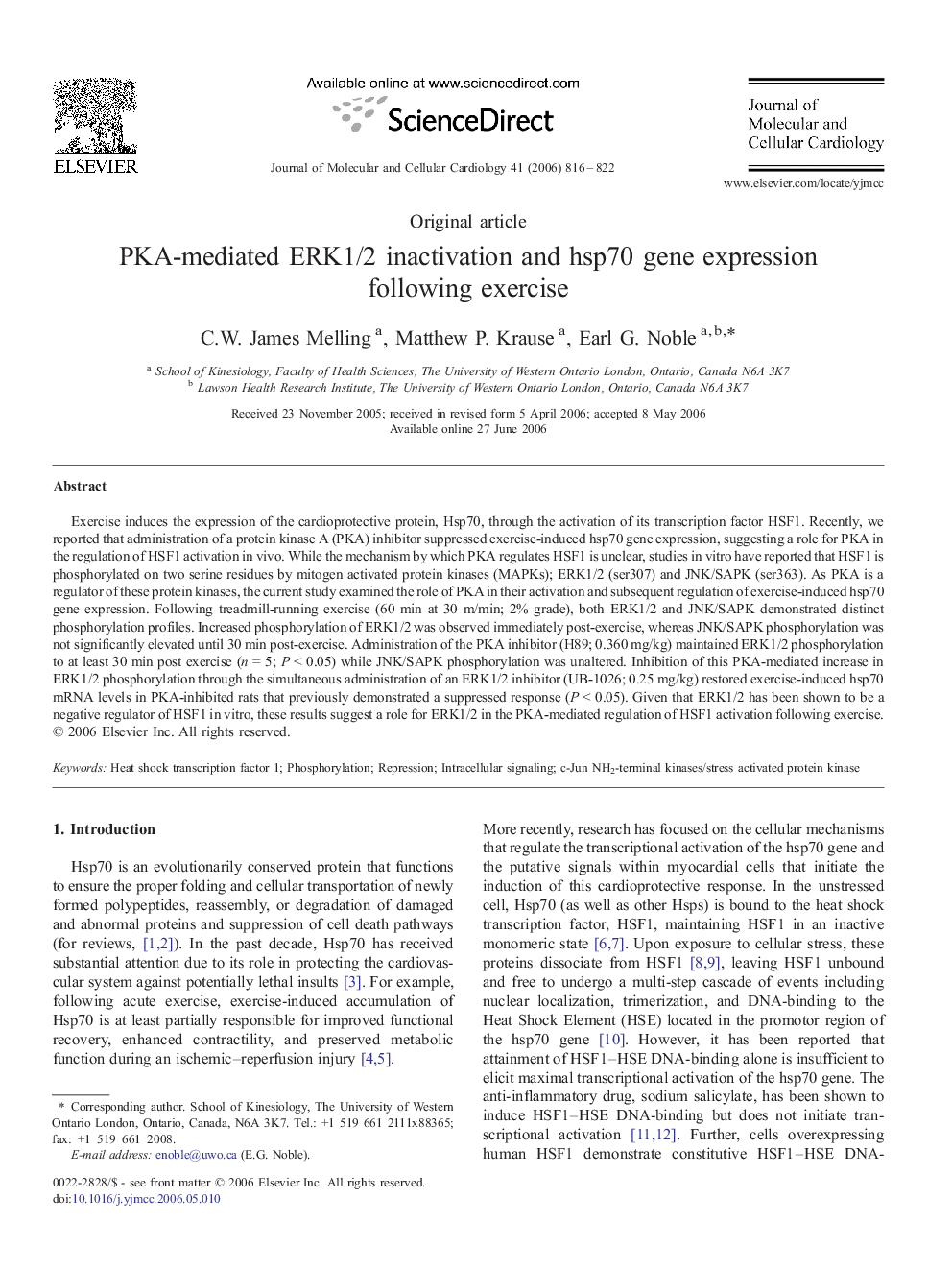| Article ID | Journal | Published Year | Pages | File Type |
|---|---|---|---|---|
| 2192173 | Journal of Molecular and Cellular Cardiology | 2006 | 7 Pages |
Exercise induces the expression of the cardioprotective protein, Hsp70, through the activation of its transcription factor HSF1. Recently, we reported that administration of a protein kinase A (PKA) inhibitor suppressed exercise-induced hsp70 gene expression, suggesting a role for PKA in the regulation of HSF1 activation in vivo. While the mechanism by which PKA regulates HSF1 is unclear, studies in vitro have reported that HSF1 is phosphorylated on two serine residues by mitogen activated protein kinases (MAPKs); ERK1/2 (ser307) and JNK/SAPK (ser363). As PKA is a regulator of these protein kinases, the current study examined the role of PKA in their activation and subsequent regulation of exercise-induced hsp70 gene expression. Following treadmill-running exercise (60 min at 30 m/min; 2% grade), both ERK1/2 and JNK/SAPK demonstrated distinct phosphorylation profiles. Increased phosphorylation of ERK1/2 was observed immediately post-exercise, whereas JNK/SAPK phosphorylation was not significantly elevated until 30 min post-exercise. Administration of the PKA inhibitor (H89; 0.360 mg/kg) maintained ERK1/2 phosphorylation to at least 30 min post exercise (n = 5; P < 0.05) while JNK/SAPK phosphorylation was unaltered. Inhibition of this PKA-mediated increase in ERK1/2 phosphorylation through the simultaneous administration of an ERK1/2 inhibitor (UB-1026; 0.25 mg/kg) restored exercise-induced hsp70 mRNA levels in PKA-inhibited rats that previously demonstrated a suppressed response (P < 0.05). Given that ERK1/2 has been shown to be a negative regulator of HSF1 in vitro, these results suggest a role for ERK1/2 in the PKA-mediated regulation of HSF1 activation following exercise.
